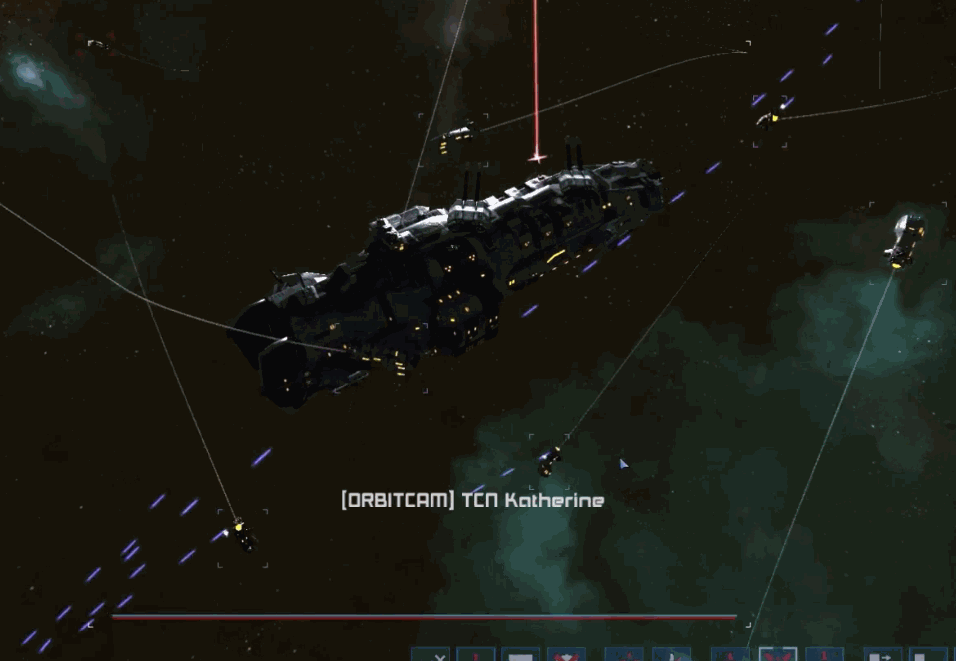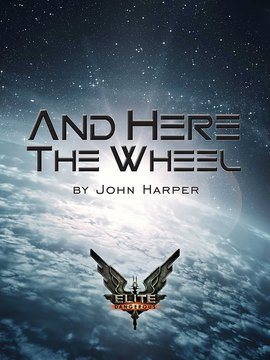A lot of people dream of writing for at least one video game. John Harper, has written for several, including the recent Elite: Dangerous. I sat down with John to talk about what it’s like, writing lore, story, and tie-in novels for video games.
You cite in your bio that your first major step forward was when you read your fan novelization of Short Circuit. What was it that first hooked you about adapting other media to written word?
John Harper: It wasn’t so much the concept of adapting, but emulating, being part of something. Short Circuit was a story about a machine that was alive. I mean, wow, that was just cool, and a world I wanted to be a part of. Writing my own version was my way of being part of it.
In addition to writing for the Elite: Dangerous book series, your day job is as a mechanical engineer, and you cite having a “religious” passion for V8 cars. What is it about machines and engineering that inspires your fiction?
John Harper: I’m a believer that you’re either an engineer or you are not. An engineer looks at the world a certain way. How does that work? Why does it work? Can I make it better? Pulling things apart, fixing them yourself or making them into something else altogether. For example: a dud water pump and a chimney spout sit on my workbench and will soon be a darrieus wind mill for me to experiment with.
When you write a story you bring your own life experiences into the narrative. I like to bring engineering to my stories where appropriate, either blatantly on the page or in the background. In a novel I have drafted, I produced a spreadsheet to calculate the gravity effects of the sun (based on real solar mass data) so that the hyperjump distances from suns was consistent throughout the novel. Probably no one would notice but the novel would be internally consistent, and I think it was cool.

How was the experience of writing official fiction in the Elite: Dangerous universe? Did Frontier Developments let you go wild with the story or was there a specific story they wanted you to tell?
John Harper: The plot / story was all mine. I went back forth with Frontier a few times but they loved the concept and gave me the greenlight pretty quickly.
The whole experience was a big learning curve. Being a life-long fan of Elite and having played all versions of the game I was well versed in the canon to date. I had lived and breathed Elite for so much of my life that it felt so natural, however the latest game was set fifty years after the last Elite game, and a lot had changed.
As Frontier Developments were designing the game and building the new lore, new ‘rules’ were coming out, most of them after I had finished my first draft (I’m a quick writer).
Sometimes rules changed after they were made – that’s the life of making computer games – but I had to keep up with this and integrate this into my novel to make sure it stayed a true canon story, while allowing for fictional license. A lot of questions went back and forth but my questions were answered as best as they could be, given the parallel development.
The novel went through its edits, my editor had her way with it, then it went to Frontier Developments for approval. There was around 50 minor details that they wanted changed and then it was done and dusted. It was very interesting, working in someone else’s sandbox, but an experience I’d love to do again.
Along with your book writing, you are currently part of the team for The Seed, the latest project from the team behind the Stalker mod MISERY. How has the transition been from a single linear story to the more branching style of Visual Novels?
John Harper: The Seed has been real fun. I’ve taken ownership of a particular choice thread, (i.e the player choose left or right, and everything that happens after they choose is defined by that choice). Each chapter is a very manageable chunk, which makes it easy, but both within chapters and in parallel chapters (after different decisions) there can be concurrent narrative.
The character might visit the same place but from different directions with different goals, with different people. It’s fun creating a landscape then going back and checking it out again from a different angle. It also keeps you on your toes making sure you keep it consistent. The idea is that each playthrough of the game gives a unique experience that has similarities and differences.

I’m also writing for Shallow Space, a space based real time strategy, and I am currently building the backstory and histories of planets, stellar systems, corporations and major characters and plot lines. This will be a game with great visuals and plot, with little nuggets to give awesome verisimilitude. I hope some kid out there will see the game, play it, and write their own fan fiction because they want to be a part of it too.
How do you feel about the role writers play in the game industry? There’s been some debate over whether they receive the credit they are due.
John Harper: I feel writing is incredibly important to the game industry, but not more important than any other aspect. For a visceral experience for the player you need visuals and you need a plot and you need characters to root for. They all work together. Without everything working together the game will be shallow and won’t stand the test of time.
Writers have always been in the background, that’s the same in Hollywood, but credit should be given where credit is due.
What’s one other IP you’d love to officially write for?
John Harper: I’m a big Star Wars fan and would love to write a Star Wars novel, but as far as computer games go, you can’t beat Half Life. The immersion I have felt in those games has been unmatched. I’d love to be a writer on their team for Half Life 2: Episode 3 or do some side stories that help flesh out the universe better — like explain why all those Black Mesa refugees seem to be cropping up and working together.
What is a personal piece of advice you’d give to every aspiring fiction writer out there?
John Harper: Learn story structure. Write about your passions but if you want to sell, write about passions that have a market. Deconstruct successful stories. Copy out parts you think work well to learn how they tick.
And now, as at the end of all my interviews, I like to let my interviewee ask me and/or my audience a question. So if you have any questions, fire away!
John Harper: How did you get involved in GameSkinny and do you love working with them?
I just sort of randomly came upon the website back in early 2014. I was looking to really spread my wings after volunteering for some time at a site that was struggling. I gave it a whirl, and found I liked it a lot. The editors have always been great. I mean, they’re practically vampires they are online so often (not that they drink blood coffee or anything 😉 ).
And really, no matter where I go, I always feel an urge to write one more piece for GameSkinny. This site helped me get my footing and learn a lot of things, and I’m happy to write for it. A lot of places, you find them desperate for writers and often badly run. Here, everyone’s on point and there’s always another improvement around the corner.
For more on John Harper, please be sure to visit his website, which includes links to his podcast and books (some of which, are available for free!).







Published: May 30, 2015 02:06 pm